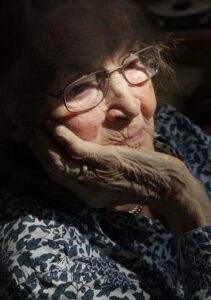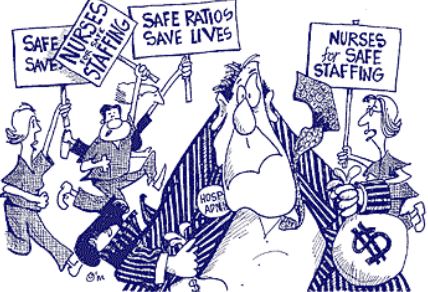A Different Pandemic is Raging Across the United States – Understaffing in Nursing Homes
 Across the United States, a pandemic is raging—and it has nothing to do with the infamous coronavirus that is currently occupying headlines. Instead, the country is facing a nationwide staffing challenge in nursing homes in nearly every state. The vast majority of nursing homes, memory care facilities, and assisted living locations continue to under-employ staff, which leads to chronic overworking and a direct decline in care. For one nursing home in Brooklyn, New York, the effort to save money by cutting payroll has generated legal trouble.
Across the United States, a pandemic is raging—and it has nothing to do with the infamous coronavirus that is currently occupying headlines. Instead, the country is facing a nationwide staffing challenge in nursing homes in nearly every state. The vast majority of nursing homes, memory care facilities, and assisted living locations continue to under-employ staff, which leads to chronic overworking and a direct decline in care. For one nursing home in Brooklyn, New York, the effort to save money by cutting payroll has generated legal trouble.
Myriam Durand, a former nurse at Crown Heights nursing home in Brooklyn, has filed a class-action lawsuit against the facility for its handling of overtime payment. She alleges that the staff at Crown Heights Center for Nursing and Rehabilitation were typically assigned more hours than were allotted in their normal shift for no extra pay. Overworked and underpaid nurses cannot provide the appropriate standard of care to residents.
Durand and her legal representative claim that these hours—which commonly exceeded 12 per shift at the facility on St. Marks Avenue—were not paid at the time and a half overtime rate required by New York and federal law.
Between 2015 and 2017, Durand alleges that the failure to pay appropriate overtime left her paychecks lacking by nearly $200,000. Her typical weekly shifts concluded with anywhere between 60 and 72 hours logged, but her paychecks remained the same.
A full 17 pages of the lawsuit are dedicated solely to listing the dates on which Durand worked 12-hour shifts or more; this accounted for more than 3,000 hours of labor that went uncompensated, either at her regular rate or at the legally required overtime rate. While Durand is the only plaintiff named on the lawsuit against Crown Heights Center for Nursing and Rehabilitation, other staff may choose to come forward at any time, and others will likely join during the pre-trial discovery phase of the investigation.
If others join Durand in filing a suit against Crown Heights, the facility could be on the hook for millions of dollars in pay owed. The facility did not offer comment on the situation.
The State of Staffing in Skilled Nursing Facilities
 Myriam Durand’s situation is not uncommon in the field of nursing home care. In recent years, staffing troubles have escalated, and patient outcomes have suffered as a result.
Myriam Durand’s situation is not uncommon in the field of nursing home care. In recent years, staffing troubles have escalated, and patient outcomes have suffered as a result.
The National Association of Nursing Home Attorneys has compiled statistics on the current state of nursing homes, and the result is not a positive one. According to the report, 90% of nursing homes across the country are maintaining staff levels that are too low to provide sufficient care to residents. This is typically used as a cost-cutting measure, and it means that a single aide may be responsible for upwards of 30 people.
As a reminder, the ideal ratio of staff to residents is one to three; this is where the best care is achieved. As nursing homes continue to cut corners in how they employ and pay their workers, poor quality care across the board that results in bedsores and broken bones is expected to rise. In part, rules that enable nursing homes to collect money from benefit checks and Medicare/Medicaid incentivize profit over quality of life. The situation with staffing across the country did not become dire overnight, and a solution will need to be integrated over time as well. Filing lawsuits for staffing issues is a valuable place to start by penalizing facilities in the area that they tend to care about most—their bottom line.
Nursing Home Negligence Stems From Staff Shortages
Many cases we see at Senior Justice Law Firm stem from nursing homes or assisted living facilities not having enough staff to support the amount of residents they have. This will ultimately lead to negligent care. It is often for-profit nursing homes and ALF’s that have these issues. The executives of these long term care facilities obviously care more about their profits than supporting their employees and thus their residents.
If you or a loved one suffered negligent care in a long term care facility due to a shortage in staffing, call us toll free: 888-375-9998



